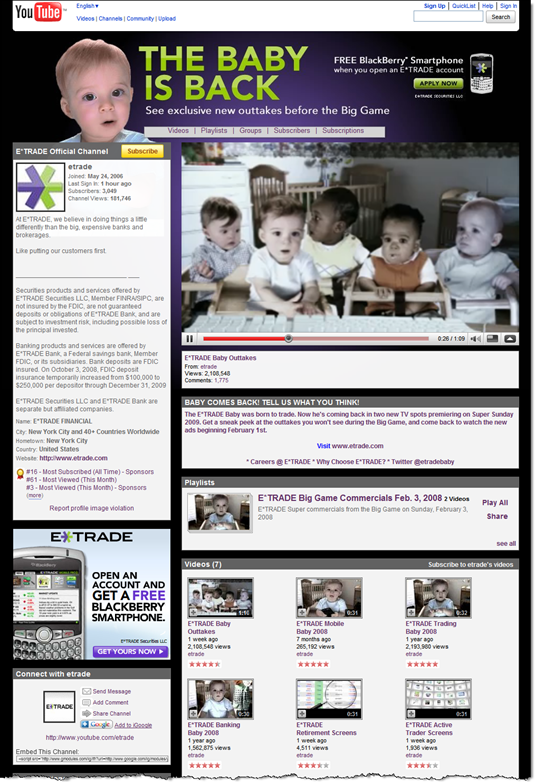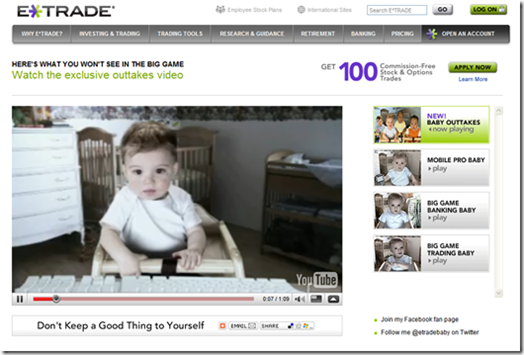 On Friday, I received a marketing message from U.S. Bank attempting to convince me to turn off my paper statements and adopt online statements. In 2007 (here), I wrote about its similar effort at login.
On Friday, I received a marketing message from U.S. Bank attempting to convince me to turn off my paper statements and adopt online statements. In 2007 (here), I wrote about its similar effort at login.
The graphic design and layout are wonderful with splashes of green throughout and a peaceful, sunny forest scene. It’s a nice bit of branding for the bank. So far, so good.
However, in terms of direct-marketing effectiveness, where the goal is to get the reader to take action, the message leaves a lot to be desired.
Turning off your paper statement is a relatively major change in behavior (previous post), so readers need clear information and/or incentives to move to less-costly paperless delivery. This message is lacking in both.
Benefit statements
Here are the supposed user benefits touted in the email:
Online statements help you:
– Deter fraud
– Reduce clutter
– Manage accounts
– Get real-time updates
Let’s look at the benefits from the standpoint of the end-user:
- Deter fraud: Can the average reader make the leap to how online statements will cut down on fraud? I doubt it. This bullet point needs more detail.
- Reduce clutter: This is pretty self explanatory. But do people really think of their monthly bank statement as “clutter.” Some do, but it’s not a particularly compelling argument.
- Manage accounts: This wording leaves a lot to be desired. How does turning off your paper statements help you manage your accounts better? Presumably, those who sign up for online statements have more info available online. If that’s the case, the bank needs to say so.
- Get real-time updates: What do online statements have to do with real-time updates? This is probably meant as a generic benefit for banking online, but it’s out of place here.
On the other hand the environmental benefits are much more tangible. However, for the cynical reader (and there are a LOT of cynical bank customers these days), there should be footnotes explaining the derivation or source of the green benefits. For example, at the bottom of the message there’s prominent claim:
Save nearly 7 pounds of paper yearly by Going Green.
That sounds impressive, but if you think about, it doesn’t jive with experience. Unless you get your checks back, most statements come in at under an ounce. And that includes a significant amount of bank advertising flyers. So how do we get from 12 ounces saved annually to the 7 lbs cited in the email? Readers will never know because there is no additional info available to substantiate the claim. You would think the bank would explain the claims on the landing page, but it has even less info (see below).
Call to action/incentives
The message includes tangible, albeit unsubstantiated, environmental benefits which are compelling. However, customers know that all these benefits spell significant cost savings for the financial institution. For some customers, especially of member-owned credit unions, that may be enough to get them to take action.
However, many customers are going to feel this is a pretty one-sided deal. If they are going to give up the comfort of their paper statements, there should be something in it for them.
That’s why we recommend an incentive of some sort. It could be a periodic giveaway, a one-time thank-you gift ($5 at Amazon), or an extra online benefit they wouldn’t otherwise get, such as long-term archives, premium customer service or a free-overdraft card. For example, Key Bank offered a low-cost and effective incentive in the fall (post here). Chase had an even better promotion in 2007 (post here).
Landing page
Granted, there isn’t much room in a one-page HTML message. So it’s understandable that the benefits are abbreviated. Usually, a marketer will use the landing page to expand on the key features and benefits. However, U.S. Bank’s landing page offers little additional help (see screenshot below).
The page doesn’t connect back to the email in any meaningful way. Benefits are neither reiterated, nor explained. Within the page, a brief explanation tells how to enroll, but surprisingly the Enroll Today link on the right has nothing to do with estatements and leads to a page explaining online access options.
Grades
- Design: A
- Copywriting: B+
- Content: C+ (could be A- if benefits were explained on the landing page or FAQ)
- Landing page: D
- Overall effectiveness: A- for brand building; C- for driving estatement enrollment
U.S. Bank email marketing message, “Go Green with Online Statements” (23 Jan. 2009)


U.S. Bank landing page for online statements (link, 27 Jan. 2009)

Note: See our Online Banking Report on Email Marketing and Online Banking Report on Emessaging & Statements for more information.
 FinovateStartup09, our annual springtime technology event in the San Francisco Bay area, is just three months away. Today, we announced the first wave of young companies committed to participate on April 28.
FinovateStartup09, our annual springtime technology event in the San Francisco Bay area, is just three months away. Today, we announced the first wave of young companies committed to participate on April 28.























